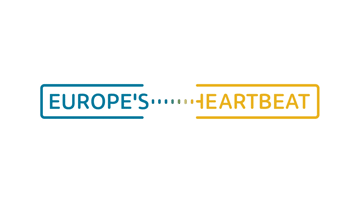In logistics, reusable load carriers, such as Euro pallets and containers, are essential. However, managing them is often complex, confusing, and resource-intensive. Logistikbude, a startup from Dortmund, has taken on this challenge by developing software that digitizes and automates processes. The idea originated at the Fraunhofer Institute for Material Flow and Logistics IML, where the founder, Dr. Philipp Hüning, and his team pursued the vision of a simple, efficient solution.
Today, companies such as RWE, Dachser, and DB Schenker use the cloud-based platform to increase transparency, reduce costs, and operate more sustainably. In particular, the integration of the Internet of Things (IoT) makes it possible to track the location of load carriers in real time. Logistikbude helps make day-to-day logistics more efficient and environmentally friendly.
In an interview with NRW.Global Business, Dr. Philipp Hüning discusses the formation of Logistikbude and its mission to modernize analog logistics processes. He discusses the industry's complex requirements and the importance of NRW as an innovation hub. He also provides insight into the startup's strategic plans to establish its solution nationally and internationally.
Dr. Hüning, could you please explain your technology's core concept – the digitalization and automation of load carrier management – in a little more detail?
Our technology is based on an intuitive, technology-independent software solution that fully digitizes and automates the management of returnable load carriers, including pallets, containers, and racks. At its core, we offer companies software that provides real-time visibility into stock and movement. Our solution fully digitizes and automates processes that used to be paper-based, error-prone, and time-consuming. This includes tracking load carriers, managing exchange processes, and automatically documenting all movements. Our goal is to make managing reusable goods as simple as managing disposable goods – only more sustainable and significantly more efficient.
What specific economic and ecological advantages does your technology offer companies?
Companies benefit primarily from reduced personnel costs and shrinkage. Our software provides transparency and automates many manual processes, significantly reducing administrative costs. Loss of load carriers is minimized because stocks can be tracked at all times. The system pays off ecologically because it uses reusable logistics more efficiently and avoids wasting resources. Fewer losses mean less reproduction and transportation, which significantly reduces a company's carbon footprint. In short, companies work more efficiently, cost-effectively, and sustainably.
What other technological developments do you plan to implement to make load carrier management more efficient?
A central focus of our ongoing development is the use of artificial intelligence (AI). For example, we use AI-supported forecasts to predict future demand for load carriers even more precisely and thus optimize circulation planning further. Our goal is not only to monitor stock levels, but also to provide automated recommendations for scheduling and cycle management. These capabilities allow companies to proactively avoid bottlenecks and use their resources more efficiently. Additionally, we already use innovative tracking technologies, such as the Internet of Things (IoT), radio frequency identification (RFID), and Bluetooth Low Energy (BLE). Through partnerships with Bosch and Deutsche Telekom, we are integrating these technologies into our product. These technologies allow for more seamless and automated tracking of all load carriers, regardless of their location or the infrastructure used. The combination of AI and state-of-the-art sensor technology makes our system transparent, predictive, and adaptive. Our goal is to gradually automate and intelligently control load carrier management – always with the aim of reducing effort for our customers and increasing the sustainability of logistics.
How would you rate the entrepreneurial ecosystem in NRW, particularly with regard to skilled workers, infrastructure, proximity to industry, and starting a business?
North Rhine-Westphalia, and the Ruhr region in particular, offers ideal conditions for us as a logistics start-up. The region is a hub for logistics and industry, providing us with direct access to potential customers and partners. Its proximity to universities, such as TU Dortmund, provides good access to specialists and innovations. The infrastructure, from transport routes to start-up centers, is also excellent. We are experiencing a supportive network and a growing start-up scene that rivals Berlin and Munich. Leaving NRW has never been an option for us; on the contrary, we see ourselves as a best-practice example of what is possible here.


